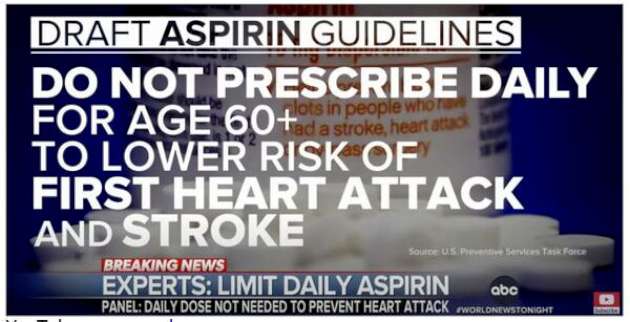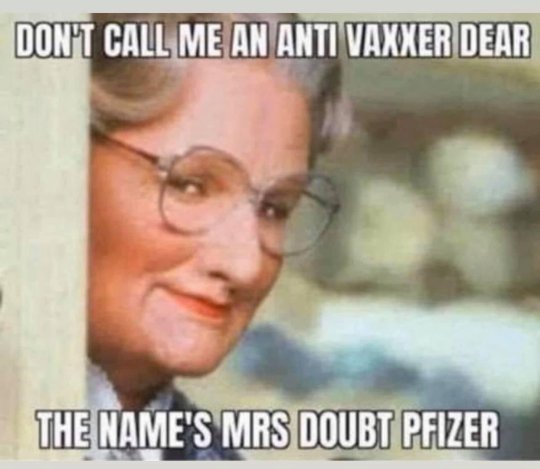Ninety miles from the South Eastern tip of the United States, Liberty has no stead. In order for Liberty to exist and thrive, Tyranny must be identified, recognized, confronted and extinguished.
infinite scrolling
Tuesday, October 19, 2021
Monday, October 18, 2021
Blogs With Rule 5 Links
The Other McCain has: Late Night With Rule 5 Sunday: Kate Upton
Proof Positive has: Best Of Web Link Around
The Woodsterman has: Rule 5 Woodsterman Style
EBL has: Rule 5 And FMJRA
The Right Way has: Rule 5 Saturday LinkORama
The Pirate's Cove has: Sorta Blogless Sunday Pinup
BEWARE Of Dihydrogen Monoxide!
Ban Dihydrogen Monoxide! The Invisible Killer! Dihydrogen monoxide (DHMO) is colorless, odorless, tasteless, and kills uncounted thousands of people every year. Most of these deaths are caused by accidental inhalation of DHMO, but the dangers of dihydrogen monoxide do not end there. Prolonged exposure to its solid form causes severe tissue damage.
'They're lying at your network': In tense exchange, Joe Rogan forces Sanjay Gupta to admit CNN claiming he took 'horse dewormer' was wrong
Is Aspirin the New Horse Dewormer?
Aspirin is one of those drugs that has been around forever. It is commonly used as a pain reliever, anti-inflammatory, and as a blood thinner. Surprisingly it may also have benefit in treating COVID.
A paper in Anesthesia and Analgesia published last spring titled, “Aspirin use is associated with decreased mechanical ventilation, intensive care unit admission, and in-hospital mortality in hospitalized patients with coronavirus disease 2019.”
This was a retrospective, observational study of adult patients admitted to multiple hospitals in the U.S. between March and July 2020, in the early days of COVID. The primary outcome addressed by the researchers from George Washington University was the need for mechanical ventilation, which then, and still now, carries an extremely high chance of never leaving the ICU alive.
This was not a gold standard randomized prospective clinical trial. That would not be feasible in this situation since study patients were already hospitalized and critically ill. Remember in the early days, one needed to be extremely ill before even being admitted to the hospital rather than being sent home until sick enough to return and go straight to the ICU.
But the results were impressive. As reported last week by the Jerusalem Post,
The team investigated more than 400 COVID patients from hospitals across the United States who take aspirin unrelated to their COVID disease, and found that the treatment reduced the risk of several parameters by almost half: reaching mechanical ventilation by 44%, ICU admissions by 43%, and overall in-hospital mortality by 47%.

Why would aspirin be helpful for COVID, a respiratory disease? What if COVID is more than simply a lung disease or pneumonia? COVID is actually thought to be a microvascular disease causing blood clots, as described in the medical journal Circulation,
Although most patients with coronavirus disease 2019 (COVID-19) present with a mild upper respiratory tract infection and then recover, some infected patients develop pneumonia, acute respiratory distress syndrome, multi-organ failure, and death. Clues to the pathogenesis of severe COVID-19 may lie in the systemic inflammation and thrombosis observed in infected patients. We propose that severe COVID-19 is a microvascular disease in which coronavirus infection activates endothelial cells, triggering exocytosis, a rapid vascular response that drives microvascular inflammation and thrombosis.
Note the thrombosis aspect, blood clots forming in the lungs and elsewhere in the body. Aspirin, as a blood thinner, reduces the risk of blood clots, explaining its potential benefit for COVID.
For the same reason, the American Heart Association recommends,
If you have had a heart attack or stroke, your doctor may want you to take a daily low dose of aspirin to help prevent another. Aspirin is part of a well-established treatment plan for patients with a history of heart attack or stroke.
Add the appropriate caveat, which I would echo, “You should not take daily low-dose aspirin on your own without talking to your doctor. The risks and benefits vary for each person.”
How did aspirin get its start? Over 3,500 years ago, willow bark, known as “nature’s aspirin,” was used as a painkiller and anti-pyretic by ancient Egyptians and Greeks, and in a chemical synthesis by a Bayer chemist in 1897.
Aside from pain relief, it was found to have anti-platelet and anti-cancer effects. It’s also on the World Health Organization’s list of essential medicines, along with another familiar drug, ivermectin. The Harvard-based physicians’ health study in the 1980s found that low dose aspirin reduced the risk of heart attack by 44 percent.
A recently published Israeli study found, “Aspirin use is associated with better outcomes among COVID-19 positive patients.” This included lower likelihood of infection, disease duration, and hospital survival. In other words, aspirin works as both a preventative and as a...
Civil Liberties Are Being Trampled by Exploiting "Insurrection" Fears. Congress's 1/6 Committee May Be the Worst Abuse Yet.

Following the 9/11 script, objections to government overreach in the name of 1/6 are demonized as sympathy for terrorists. But government abuses pose the greater threat.
When a population is placed in a state of sufficiently grave fear and anger regarding a perceived threat, concerns about the constitutionality, legality and morality of measures adopted in the name of punishing the enemy typically disappear. The first priority, indeed the sole priority, is to crush the threat. Questions about the legality of actions ostensibly undertaken against the guilty parties are brushed aside as trivial annoyances at best, or, worse, castigated as efforts to sympathize with and protect those responsible for the danger. When a population is subsumed with pulsating fear and rage, there is little patience for seemingly abstract quibbles about legality or ethics. The craving for punishment, for vengeance, for protection, is visceral and thus easily drowns out cerebral or rational impediments to satiating those primal impulses.
The aftermath of the 9/11 attack provided a vivid illustration of that dynamic. The consensus view, which formed immediately, was that anything and everything possible should be done to crush the terrorists who — directly or indirectly — were responsible for that traumatic attack. The few dissenters who attempted to raise doubts about the legality or morality of proposed responses were easily dismissed and marginalized, when not ignored entirely. Typically, they were vilified with the accusation that their constitutional and legal objections were frauds: mere pretexts to conceal their sympathy and even support for the terrorists. It took at least a year or two after that attack for there to be any space for questions about the legality, constitutionality, and morality of the U.S. response to 9/11 to be entertained at all.
For many liberals and Democrats in the U.S., 1/6 is the equivalent of 9/11. One need not speculate about that. Many have said this explicitly. Some prominent Democrats in politics and media have even insisted that 1/6 was worse than 9/11.
Joe Biden's speechwriters, when preparing his script for his April address to the Joint Session of Congress, called the three-hour riot “the worst attack on our democracy since the Civil War.” Liberal icon Rep. Liz Cheney (R-WY), whose father's legacy was cemented by years of casting 9/11 as the most barbaric attack ever seen, now serves as Vice Chair of the 1/6 Committee; in that role, she proclaimed that the forces behind 1/6 represent “a threat America has never seen before.” The enabling resolution that created the Select Committee calls 1/6 “one of the darkest days of our democracy.” USA Today’s editor David Mastio published an op-ed whose sole point was a defense of the hysterical thesis from MSNBC analysts that 1/6 is at least as bad as 9/11 if not worse. S.V. Date, the White House correspondent for America's most nakedly partisan "news” outlet, The Huffington Post, published a series of tweets arguing that 1/6 was worse than 9/11 and that those behind it are more dangerous than Osama bin Laden and Al Qaeda ever were.
 S.V. Dáte @svdate
S.V. Dáte @svdateByron York @ByronYork
On George Will's desire 'to see January 6 burned into the American mind as firmly as 9/11 because it was that scale of a shock to the system.' No, it wasn't. There is simply no comparison in scale or motivation between the two. For some perspective: 1/5May 25th 2021
218 Retweets1,064 LikesFully Vaxxed Colin Powell Dies From "Covid Complications" - Undone by the Establishment He Supported
General Colin Powell, the first black Chairman of the Joint Chiefs of Staff and Secretary of State, died Monday morning from complications of COVID-19.
He led a storied military career and emerged on the political scene as a Republican who challenged his party to do more to reach out to minority communities. His stature was considerably undermined after he was used to push the Iraq War on a flawed basis, and after he became a perennial supporter of Democratic presidential candidates.
Powell was born in Harlem, New York, in 1937 and attended the City College of New York at a time when it was full of future leaders and Nobel laureates.
Though he described himself as an average student, Powell’s studies and his service in the Reserve Officers’ Training Corps set him on a path for a trailblazing military career. He served two tours in Vietnam, and developed close ties to the military and political hierarchy that helped him climb the policymaking ladder in...
Subscribe to:
Comments (Atom)





















